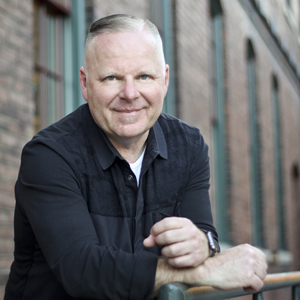Issue of 2017: affordable housing in Toronto
January 10, 2018It’s perhaps the hottest issue of the year in Toronto: People left out in the cold due to lack of affordable housing.
Housing affordability is at an all-time low. On average, a six-figure household income is required to afford almost any type of home in the Greater Toronto Area: $1 million is the going rate for the average single-family detached home. While low-income earners can face the serious possibility of homelessness, higher-income earners are not immune to the effects of housing affordability.

As this issue develops beyond Toronto-proper into the GTA, government, business and not-for-profit organizations search for strategies to address and resolve it.
In April, Premier Kathleen Wynne introduced Ontario’s Fair Housing Plan. This would tax foreign buyers and enable stricter regulations when entering the Toronto real estate market. The plan also aimed to regulate more rules governing agents, buyers and landlords, as well as establish more purpose-built rental properties.
Then, in November, Prime Minister Justin Trudeau released the National Housing Strategy. The Liberals’ plan included a $40-billion, 10-year package focused on affordable housing.
This drew mixed-reaction from Toronto social-housing activists and the real estate community.
No one wants homelessness. Everyone wants affordable housing. But can anyone fix this?
In an effort to better understand this issue from different perspectives, Toronto Storeys reached out to a series of leaders, activists and influential thinkers in our city to hear their thoughts on our affordable housing situation.
Ana Bailão, Deputy Mayor, City Councillor, Ward 18

Housing is the path to create a brighter future because it strengthens our society and economy in so many different ways. It reduces costs to our health, education, and legal systems. Having a safe, clean, and affordable place to call home helps people become healthier and more productive, allowing them to fully contribute and participate in their communities.
That is why I have made it a priority to maintain and restore our existing social housing stock. One important way that we have done this is through revitalization projects in communities such as Regent Park. By partnering with the private sector, we are able to leverage resources and replace badly damaged homes with brand new ones – giving families hope for a brighter future.
We are also finding ways to say “yes” to developers who want to work with the City to build affordable housing. By knocking down barriers, making use of surplus City land, providing City financial incentives of approximately $250 million over five years, and working with our private and not-for-profit partners, the City’s Open Door Program is delivering results. For the first time since City Council set a goal in 2009 to approve 1,000 affordable rental homes each year, we will actually meet and exceed that target for 2017.
But the work doesn’t stop there. With all three levels of government at the table, alongside our private and non-profit partners, we now have a golden opportunity to significantly tackle Toronto’s affordable housing needs.
Maurice Wager, President, Collecdev

As one of our primary social sustainability initiatives, Collecdev is dedicated to building better communities, through affordable housing. Our goal is to create thriving neighbourhoods with experiential qualities for better living. This is one of the key responsibilities we have as city builders, in the pursuit of Toronto’s healthy and balanced growth.
Our city’s future as a global beacon of innovation, inclusiveness, and quality of life, hinges on building accessible communities. Creativity and growth are the results of constant interaction between people of different backgrounds, different experiences, different perspectives, different ideas.
One of our fundamental beliefs is good design, as an art form, shouldn’t be limited by affordability. Design is driven, in part, to optimize form and function — and to connect the city. From cyclists to pedestrians to business owners and government, we should strive to create rich networks of healthy and balanced social interactions.
Buildings and open spaces can enhance safety, connectivity, and community. As an example, we recently applied these principles at Balliol Park, where over 50 per cent of the Davisville building includes mid-range, affordable rental units. In addition, 30 and 36 Tippett, will include 200 affordable rental and ownership units, as part of a greater objective to build complete communities.
Toronto needs more projects like these, where the public and private sectors come together to advance the city’s need for more affordable living. This will revitalize under-utilized sites, and demonstrate that community and affordability aren’t mutually exclusive.
Diversity, not exclusivity, is at the forefront of Toronto’s social and cultural milieu.
Jim Ritchie, Executive Vice-President, Sales and Marketing, Tridel

Housing affordability is an increasingly important matter. With single-family homes in Toronto averaging approximately $1.2 million, condominiums have become a more viable housing option, due to relative affordability.
Tridel has experienced this shift and we continue to evolve our condominium development plans to include larger options for many segments of the marketplace, such as families with children.
We accomplish this with larger, flexible, and functional floorplans – and amenities that extend residents’ living spaces in a practical manner. This allows everyone to exercise, entertain, and enjoy a family lifestyle.
Tim Jones, CEO, Artscape

As real estate markets continue to soar in cities worldwide, there’s also an affordability crisis, which we also feel in Toronto. This crisis continues to grow in our city — and it’s marginalizing many people. As the World Cities Culture Forum points out, real estate markets are the single biggest threat to ensuring arts and culture remain vibrant within our cities. These sectors are huge contributors to the liveability and economic well-being we enjoy in Toronto. But when real estate markets heat up, artists are either forced into smaller, less safe spaces, or they are forced to leave the city.
Artscape sees this firsthand. As a provider of affordable housing for 30-plus years, we help artists and artist-led families secure safe, sustainable, below-market space. We work daily with partners to find and develop affordable and creative live-and-work spaces in Toronto. This is increasingly challenging. It is, nevertheless, essential in order to continue to build a city that is inclusive of and enriched by the arts and culture.
Mitchell Cohen, President, The Daniels Corporation

Thank you, Toronto Storeys, for declaring affordable housing the issue of the year — and for reinforcing that we are experiencing a full-blown affordability crisis in Toronto and across the country.
Finally, the critical shortage of affordable housing has moved to the top of the public agenda, where it belongs.
After decades of allowing the free market to rule, all levels of government have recognized that affordable housing will NOT be built without government intervention.
The Province of Ontario will soon enact legislation allowing municipalities to require affordable housing in all new developments through inclusionary zoning by-laws. Ideally, all municipalities will embrace this opportunity, demonstrating that we have the strength, vision, and leadership to build cities that are truly inclusive.
The Federal Government has announced a National Housing Strategy that represents a fundamental shift in thinking, which recognizes shelter as the essential infrastructure of a healthy society — infrastructure that is as important as sewers and roads.
A stable, affordable place to live is the basic ingredient. It is the primary building block from which all Canadians have a chance to realize their potential and make a positive contribution to their community.
In this time of reflection and giving, let’s not wait for government to change the dial on affordable housing. Every one of us can make a difference today. Pick up the phone and call Habitat for Humanity, Covenant House, Community Living Toronto, Dixon Hall, the YMCA or any of the incredible agencies fighting for affordable housing.
One phone call can change the world.
Courtesy of Toronto Storeys